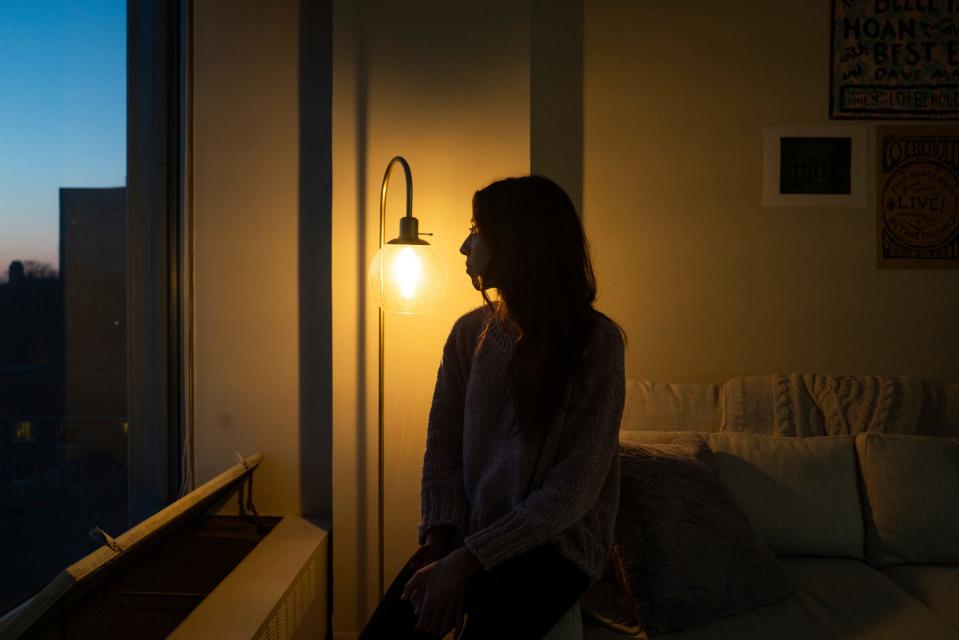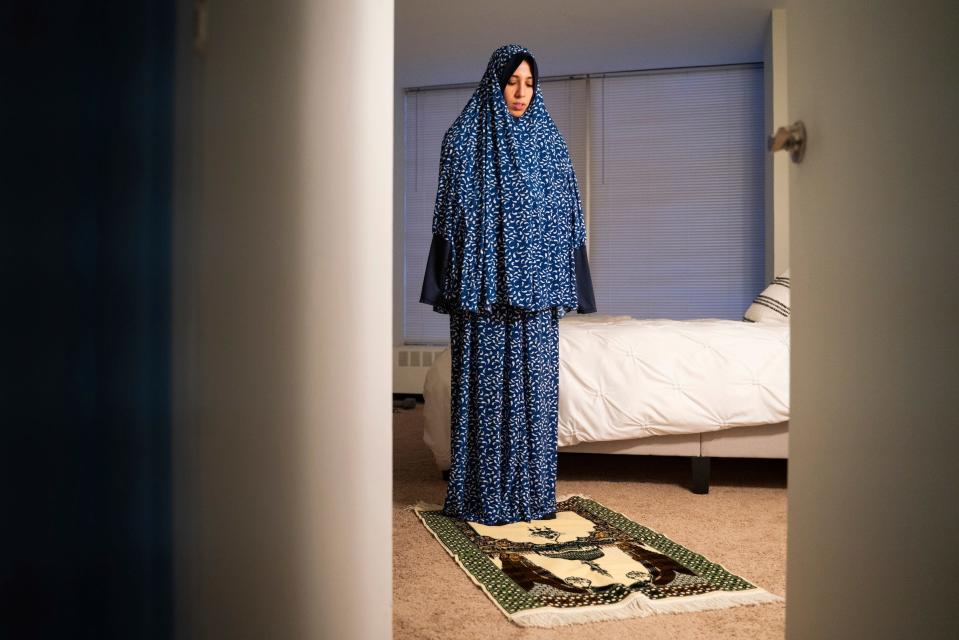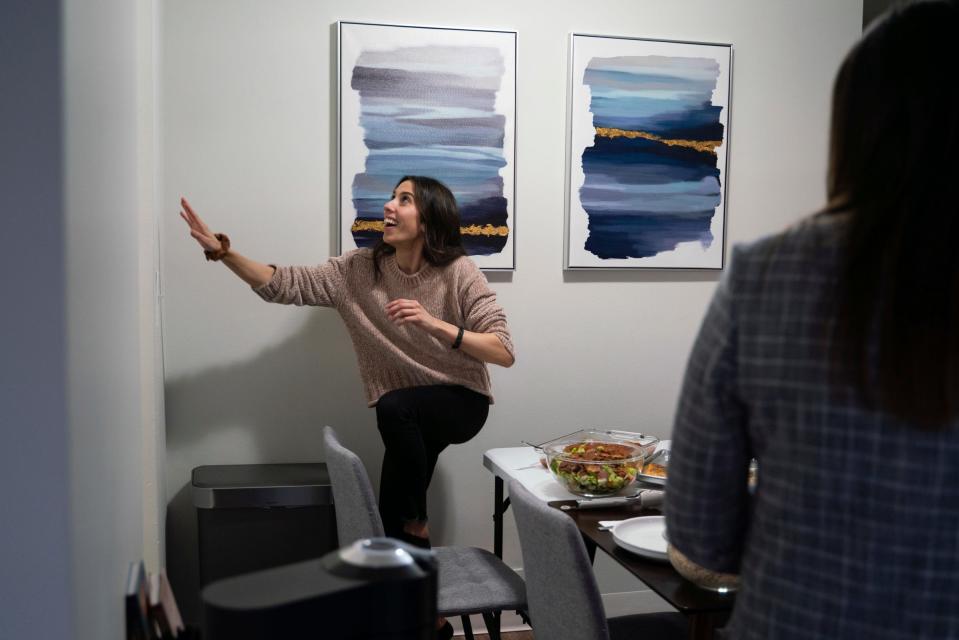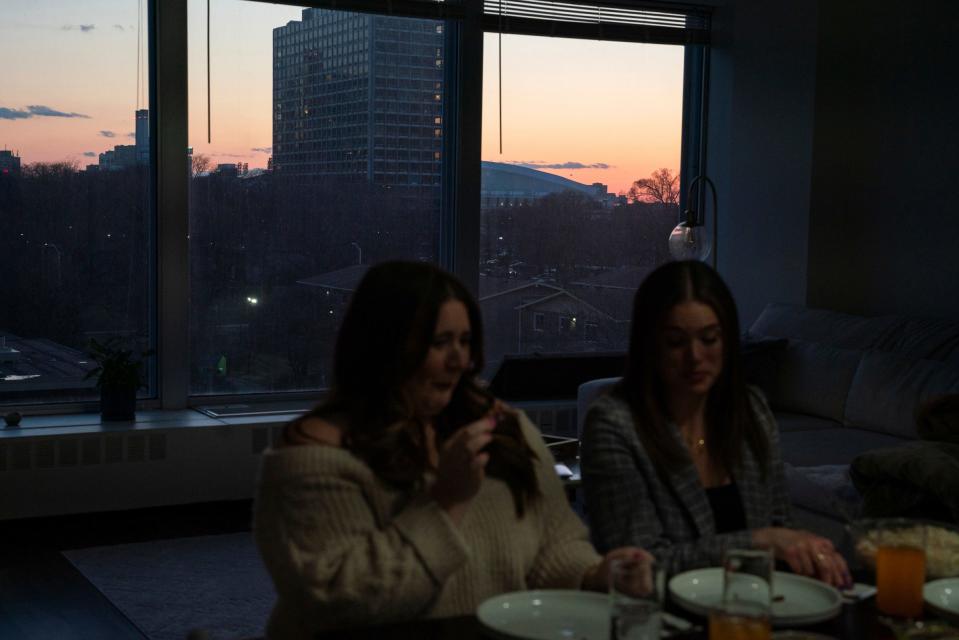Free Press reporter: Ramadan fasting is physical, mental struggle — but worth it | Opinion
Six hours. That’s how long I spent sitting in the Detroit City Council auditorium nearly three weeks ago — the first week of Ramadan — covering a monumental vote on whether developers Stephen Ross and the Ilitch family would receive millions of dollars in tax incentives for the District Detroit project. Hoping to ease into the Islamic holy month, I had scheduled five days off, but this vote was too important to miss.
I was fasting, which means abstaining from all food and drink, including water, from dawn to sunset. I’ve observed Ramadan since my childhood, and I began fasting around middle school.

As I grew older, and my life filled with more responsibilities and demands, pacing myself became crucial. I knew I would be tired. I wore thin clothing that day to protect myself from becoming overheated — those rooms in city hall can be quite warm, and I wouldn’t be able to quench my thirst during this marathon discussion. I knew I would have to walk around to let my blood flow, and rinse my dry mouth in the restroom to feel a smidgen refreshed.
I did as much advance reporting on the story as I could, because I needed to put words together while my mind was sharp. I leaned heavily on my colleague JC Reindl, who watched the meeting over my shoulder, to make sure I didn't miss anything from the drawn-out discussion, because I knew my brain power would begin to wane between 1 p.m. and 3 p.m. After the vote, I followed up with multiple councilmembers, saying, “Sorry, I’m fasting, can you help me understand what just happened?”
During Ramadan, I’m often apologizing, and reminding others that I’m fasting before I ask them to repeat themselves, or clarify something. During the first 10 days, I go through withdrawal symptoms, a feeling coffee lovers and excessive snackers know all too well. We aim to control the headaches, hunger, hanger, dehydration, exhaustion and frustrations.
My mind is in a different place during the first week. The thoughts I wrote in my journal were a little jumbled, but as the month went on and my body cleansed itself, so did my mind. I started the month a tad cranky, but I learned to control it, because Ramadan is about seeking God consciousness. To me, that means showing my love for God by making my obligatory prayers on time, giving to those in need, striving to stay on a path of virtue in every aspect of life and resisting immoral habits, thoughts and behaviors. Toward the end of the month, I certainly feel tired, but my mind is sharper and more relaxed about the world around me.
Fasting is required for Muslims who are physically able to endure a day without consumption. There are several exemptions, such as pregnancy, menstruation, travel, illnesses, or any legitimate hindrances to a person’s health, along with exclusions for youths and elderly people. If Muslims are unable to fast, they still find ways to make the most of Ramadan.
Fasting is stamped as Ramadan’s main aspect, but it’s only one piece. During the month commemorating the revelation of the Quran, we worship throughout the day and perform nightly prayers specific to the holy month. We build ourselves through religion to gain the willpower to overcome life’s hardships, and give alms with whatever means possible.
Everybody’s Ramadan experience will be different, and it can be an incredible, emotional journey. Some visit mosques every night, host iftars — the post-sunset meal to break fast— spend time alone or with family and friends, memorize chapters of the Quran, self-reflect, listen to religious lectures, pray or seek forgiveness.
Why I celebrate
The holy month is often centered around food, because fasting and food festivals receive the most attention in our communities.
We often hear people say, “You can’t even have water?” or, “How are you doing?” in a way that suggests that we must be struggling.
It’s nice to know that people care. But when we’re asked this question, it often feels like it’s coming from a place of pity. Do we give them the answer they want to hear, or do we make it seem that all is well? Non-Muslims are often shocked to hear that many of us are sad that the month flies by, because fasting, long days without our favorite grub, seems like a hardship. To us, it’s a huge blessing, and truly a gift from God to allow us to prioritize our spiritual growth and become better people. Fasting helps us experience humility, and open our hearts.

I’m often asked why I observe Ramadan. Surely, I was exposed to it through my family and community, just as any child celebrates the traditions of her culture.
But I'm well into adulthood now, and actively choose to observe Ramadan. I prioritize it because the holy month is greater than any form of medicine for my soul. It brings me closer to Islam, which allows me to do good for the sake of God — even when I’m unhappy, it’s as if becoming closer to God creates a new neural pathway that allows me to respond to situations with empathy.
It refines my thoughts and utterances. It opens up my heart in a multitude of ways to respect myself and those around me. It reminds me throughout the year that I’m blessed, especially during tough moments. My job allows me to fulfill my passion, and receive an income while doing so. I have access to food, clean drinking water and leisure activities. I’m close to my family, and to friends who feel like family. If and when life’s distractions pull me away from serving my purpose, Ramadan gives me the space to remove clutter from my mind, and, in the end, I’m more grateful for the life God blessed me with than I was the prior year.
A community celebration
Muslims don’t get federally recognized days off for Ramadan or the major holidays Eid al-Fitr and Eid al-Adha. Eid al-Fitr is the festival of breaking the fast marking the end of the holy month, while Eid al-Adha is the festival of sacrifice, commemorating Prophet Ibrahim's loyalty to God. Those living in the Muslim world are quite lucky. They typically have shorter work and school hours, and receive three to four days off for Eid al-Fitr and Eid al-Adha.
But Ramadan, at least here in southeast Michigan, has become normalized in a way that allows Muslims (and non-Muslims) to enjoy the spirit of the month, similar to the joy of Christmas tree lightings or Easter egg hunts fueling energy among children. (Or adults, if they’re doing that. No judgment.)

It’s wonderful having Dearborn’s food festivals and businesses open past their normal hours in the early morning in time for suhoor, the pre-sunrise meal. Food trucks and pop-ups, that we didn't have growing up, add to the Ramadan festivities, and in some cases have paved a successful pathway for entrepreneurs to open up brick and mortar shops. The community-organized Ramadan Suhoor Festival, held in Dearborn every weekend during Ramadan, became so popular that the city of Dearborn started its own “Ramadan Nights” festival.
Yes, food is part of it
Ramadan is a time to gather with family and friends and cook meals together. This year, I finally made a traditional Palestinian dish for my family called “maqluba” (which translates to “upside down”) using my mother’s recipe, with my sister’s guidance. The dish needs more than an hour and requires several steps: Cooking chicken (or lamb) separately, then placing it at the bottom of a pot, layered with fried potatoes, eggplant, rice and a whole lot of mouth-watering spices. Once ready, the pot gets flipped upside down onto a circular tray and topped with toasted almonds. The best part? Mama loved it. Anyone who’s had Mama’s cooking knows that compliment tops many of life’s achievements.
During the first week of Ramadan, I hosted iftar for a few non-Muslim friends, Amanda Hammou, Kate Kelly and Megan Blue, to experience the holy month with me. To my surprise, they all fasted with me that day — not that I asked them to — but they wanted to respect the custom, and to understand my annual dedication to this month.
Amanda, a devout Chaldean Catholic, is familiar with the traditions because of her Middle Eastern background, and because she practices Lent, which also involves prayer, fasting and almsgiving. But she said that, for the first time, she felt a spiritual connection with Islam’s tradition.
“There was something so special about being unified in our sacrifice to God, despite our different religions, in an effort to grow our faith. We were a group of women professionals helping prepare the meal, set the table and clean together in communion with one another,” she said. “Community is important, and experiencing my Muslim sister’s faith for the day opened my eyes to something I’ve failed to notice; we aren’t so different after all.”
Amanda is used to fasting for shorter periods. Although this was a prolonged experience, she felt more energized, especially since it connected her to God. Megan and Kate felt waves of difficulty, ease and hunger, along with the headaches and sluggishness that are parts of fasting. But, in the end, they were grateful to share the experience.
“Going about my day and just refocusing helped," Megan said. "And I actually found some clarity throughout the day."
Finding peace
Our minds are so heavily focused on the month that sometimes we feel guilt for our dwindling productivity.
Working remotely lends the opportunity to make our required five daily prayers on time, and the ability to sleep in after late-night worship.
I've told my editor that I don't feel productive, and that I'll extend my hours to make up for that. Being an understanding manager, he told me not to worry, and to work after iftar, if it's easier for me. That type of support is a green flag in the professional world for Muslims.

But things change every year, and we come up with different ways to navigate our lives. The Detroit City Council adopted the city's annual budget more than an hour before iftar, which is better than last year’s 11 p.m. vote. But as I wrote my story, a part of me felt guilty. Maybe if I had prepared my story sooner, I wouldn’t have to work through iftar. But I typed away, broke my fast eating a date, and drank a sip of water. Half-eating and half-writing, I reminded myself that I’m doing something for the community by publicizing how our government is operating, and told myself that maybe by next Ramadan, I’ll prepare differently.
Eventually, the guilt fades. When our priority is spirituality, many of us feel at peace. The month of Ramadan is never the same. But in some capacity, we learn to detach from things that Western society expects us to obsess over: work, sports, or showing up at every event. That’s not to say that these aren’t important. But Ramadan helps us recognize that even if we’re not stellar at everything, life is still valuable. Learning to express gratitude, exude kindness and practice patience will help us enhance our characters and grow our communities, inshallah, as we say — God willing.
Free Press staff writer Dana Afana covers the city of Detroit. Contact: dafana@freepress.com.
This article originally appeared on Detroit Free Press: Observing Ramadan, fasting can be hard for Muslims — but don’t pity us

